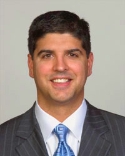
Neville M. Bilimoria
On June 25, an unprecedented event happened in U.S. Food and Drug Administration history. The FDA approved Epidiolex (cannabidiol) oral solution for the treatment of seizures associated with two rare forms of epilepsy in young children. Why was this historic? Because Epidiolex is the first FDA-approved drug that contains a natural, purified drug substance derived from marijuana. That substance is CBD or cannabidiol, which is one of hundreds of chemicals (cannabinoids) derived from the cannabis sativa plant, more commonly known as marijuana.
This approval by the FDA shows that the FDA is, in fact, willing to approve marijuana substances if it feels that the substance can truly benefit patients. FDA Commissioner Scott Gottlieb, M.D. stated:
“This approval serves as a reminder that advancing sound development programs that properly evaluate active ingredients contained in marijuana can lead to important medical therapies. And, the FDA is commi ed to this kind of careful scientific research and drug development.”
This FDA approval is a landmark approval because it is the first time FDA has acknowledged a medical or therapeutic benefit from a natural substance found in marijuana. As the FDA knows, under the Controlled Substances Act, marijuana is currently a Schedule I controlled substance which historically, by definition, means that it cannot be prescribed by a physician. The act’s Schedule I classification asserts that cannabis is equally as dangerous to the public as is heroin, defining cannabis and its distinct cannabinoids as possessing 1) a high potential for abuse, 2) no currently accepted medical use, and 3) a lack of accepted safety for the use of the drug under medical supervision.
The FDA’s approval of Epidiolex shows that the FDA believes that perhaps there is not always that scary marijuana potential for abuse, but rather a safe, medical or therapeutic benefit for marijuana after all. The approval of Epidiolex may prompt further discussion of the removal of marijuana as a Schedule I substance. Both the FDA and the Drug Enforcement Administration have for years recommended, despite some public and political urgings, to keep marijuana classified as a Schedule I controlled substance even in the face of the proliferation of state recreational and medical marijuana use statutes. The Epidiolex drug approval now further chips away at the validity of scheduling marijuana as a Schedule I substance.
What does all this mean? Well if marijuana were to be taken off of its Schedule I designation, then this could open the door for physicians to prescribe marijuana for patients. Currently, patients have to register with the Illinois Department of Public Health to obtain a green card after filling out medical paperwork and a detailed application.
Currently, patients with a green card do not go to a pharmacy, but to a licensed Illinois dispensary to obtain cannabis for medical use. Taking marijuana off the Schedule I list would allow physicians to prescribe marijuana to patients — and patients could pick up marijuana, conceivably, at a pharmacy without the need for dispensaries.
Indeed, the FDA has approved synthetic forms of marijuana, determining the efficacy of drugs like Marinol (dronabinol) (1985) for nausea from cancer chemotherapy; Cesamet (nabilone) (2006) for nausea and neuropathic pain; and Syndros (dronabinol) (2017) for nausea and vomiting from chemotherapy as well as for treating weight loss.
These are all drugs the FDA has determined have medical efficacy and use for the treatment of patients even though they are all forms of a synthetic tetrahydrocannabinol (THC), which is the primary psychoactive component of marijuana.
The approval of Epidiolex marks the FDA’s acknowledgement that proven clinical trials for the use of marijuana can lead to FDA drug approval — even though a drug is derived from a Schedule I substance. The company, GW Pharmaceuticals, a British drugmaker, studied the drug in more than 500 patients with hard-to-treat seizures, proving to the FDA in its clinical trials that the drug reduced seizures when combined with other epilepsy drugs for children.
Whatever your views are on marijuana, it seems antiquated for the government to prohibit patient use of marijuana for therapeutic and medical benefit purposes. Clearly, Epidiolex is important for children who need marijuana to ease rare types of seizures. And clearly, the medical benefit has, for the first time with Epidiolex, outweighed FDA’s hard stance to keep marijuana a Schedule I controlled substance.
We will have to stay tuned to see what happens with future of marijuana being categorized as a Schedule I controlled substance in the face of no less than four drugs that the FDA itself has approved containing chemicals (whether synthetic or natural) found in marijuana.
Reprinted with permission of Chicago Lawyer.







